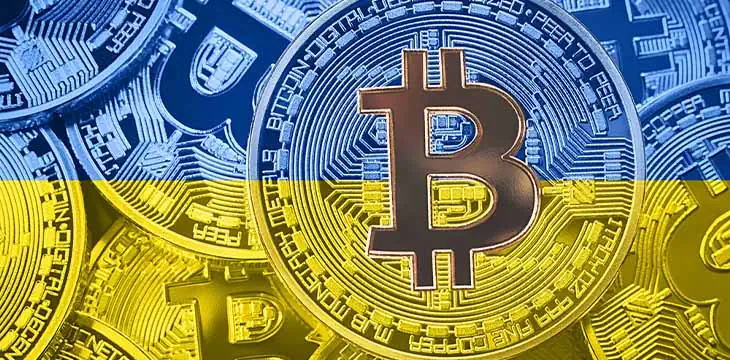|
Getting your Trinity Audio player ready...
|
Ukraine’s government appears to be changing its liberal stance toward the digital currency industry in favor of a conservative one after it demanded industry players provide financial information details.
The National Bank of Ukraine (NBU) demanded the filing of new financial information from four digital currency service providers within seven days. The affected entities include CoinPay, GEO Pay, Kuna, and Qmall as the industry seeks to rationalize the move by the banking regulator.
The announcement states that the central bank requires the four digital asset service providers to furnish details on transaction volumes and all pertinent information concerning the receipt and transfers of digital assets. The NBU expects the affected entities to compile all requested information from the start of 2023.
However, the central bank’s position has triggered a wave of concern among industry stakeholders, with Kuna CEO Michael Chobanian noting that the decision could set a dangerous precedent in Ukraine. Since the start of the year, authorities have been requesting random financial disclosures and setting new compliance starts, which Chobania says is responsible for the steep decline of trading volumes by 90% on the exchange.
“Over the past two weeks, the first wave of searches in exchanges took place in Kyiv and across Ukraine, which were triggered by the actions of the NBU, Ministry of Internal Affairs, and the Security Service of Ukraine,” said Chobanian.
The CEO revealed that the NBU’s crackdown on the industry has led to the slowing down of Web3 innovation in Ukraine. Since being forced out of Russia in compliance with global sanctions, Chobanian’s Kuna lost 60% of its volume but disclosed plans to launch a new product for the European B2B market.
“They are very consistent in killing the potential of my country and Web3 space,” said Chobanian. “I am grateful to the NBU for stimulating me to become a successful European company rather than a niche Ukrainian player.”
Relying on digital currencies for a defense
At the start of Russia’s invasion, the Web3 industry rallied to their side, donating over $100 million in digital currencies in the weeks following the offensive.
The country launched a dedicated USDT address to receive funds with BTC and Ethereum (ETH) contributing a large chunk of the donations with a cross-section donating their non-fungible tokens (NFTs) to the cause.
While traditional finance institutions waived transfer fees for donations to Ukraine, Web3 proponents have pointed out that the industry’s response to Ukraine primed the nation to mount up a formidable defense against Russia.
Watch: What’s next for digital asset exchanges & investment?

 07-01-2025
07-01-2025 





